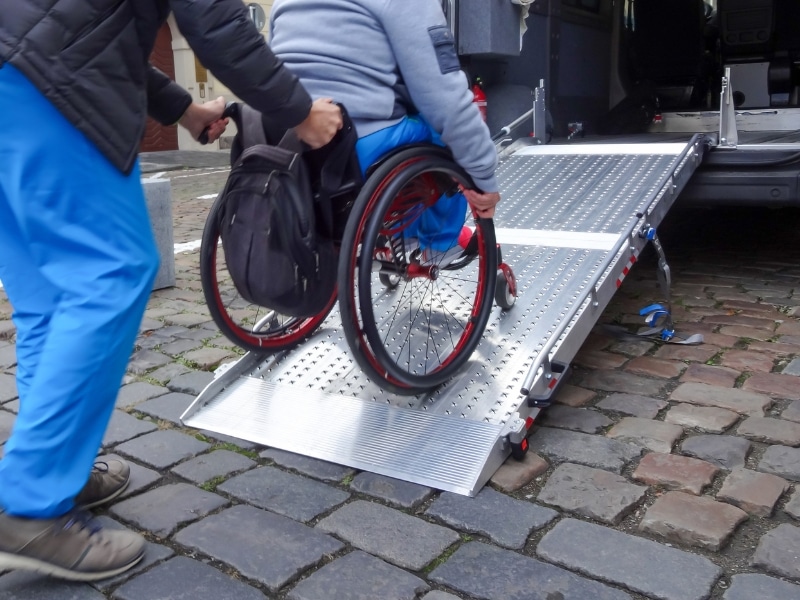Transport isn’t just about getting from A to B — it’s a lifeline to independence, community connection, and daily essentials. For many people with disabilities, transport barriers create ongoing challenges that affect more than just mobility. Without safe and consistent transportation, even routine outings can become exhausting or impossible. This article explores how assistance with transportation empowers people to live with more freedom and dignity.
What challenges do people face without reliable transportation?
A lack of accessible transport can be more than a minor inconvenience — it often locks people out of everyday life. For people with disabilities, missing transport options can lead to long periods of isolation or missed appointments.
- Medical care becomes increasingly difficult to access, potentially leading to long-term health issues.
- Social opportunities may dry up, leading to loneliness and depression.
- Family relationships can become strained when carers are overburdened.
- Employment and education options are often the first to suffer.
The problem isn’t just distance — it’s being cut off from society. If someone can’t travel on their terms, they can’t participate fully. Over time, this gap can lead to financial pressure, emotional burnout, and a decline in confidence. That’s where consistent, purpose-built transport solutions make a real difference.
Why is public transport often unsuitable for people with disabilities?
Even when public transport is technically available, it’s often unfit for purpose. Many people find the experience stressful or simply inaccessible.
- Trains and buses may lack space or proper ramp access.
- Timetables don’t always line up with medical or support needs.
- Staff may not have the training to support varied disability requirements.
- Unexpected delays or overcrowding can trigger anxiety or safety concerns.
These gaps in infrastructure and service make public transport a risky or unviable option. For instance, the challenges faced by wheelchair users in public transportation systems often include broken lifts, blocked ramps, and unclear signage. For someone navigating this daily, it’s a recipe for frustration and fatigue.
How does limited transport access affect long-term well-being?
Lack of transport isn’t just inconvenient — it chips away at mental and physical well-being.
- Social isolation increases the risk of depression and cognitive decline.
- Inconsistent access to medical care leads to worsening health outcomes.
- Missed work or classes can limit economic independence.
- Reliance on family or support staff creates added tension.
Long-term, this erosion of autonomy leads to shrinking social networks, missed milestones, and stalled recovery. The impact becomes a cycle — the less you can move, the more isolated you become, and the harder it gets to ask for support.
This is why assistance with transportation is more than a support service — it’s a step towards dignity. Enabling choice, control, and consistency helps maintain not just logistics, but self-esteem.
What transport options support people with limited mobility?
Not every solution works for every person — and that’s the point. Good transport support should be flexible and adaptive.
- Modified vehicles allow for secure wheelchair access.
- Door-to-door services reduce the need for complicated route planning.
- Support workers trained in mobility aid handling provide peace of mind.
- Flexible scheduling means appointments and routines can be maintained.
Importantly, transport support through NDIS can be part of a broader plan. People can find assistance with transportation tailored to mobility needs that fits their goals and living situation. From specialist vehicles to trained staff, it’s about supporting independence, not just ticking a box.
Mobility Option | Description | Best For |
Wheelchair-accessible vans | Vehicles with ramps and restraint systems | Individuals using mobility aids |
Community transport | Shared services for local trips | People needing low-cost options |
Support worker transport | Personalised help with travel tasks | Those needing extra supervision |
Rideshare partnerships | On-demand, app-based solutions | Tech-savvy users in urban areas |
How can assistance with transportation improve access to daily needs?
Without reliable transport, even simple daily tasks become hurdles. Being able to attend appointments, shop for groceries, or meet with others is crucial to both mental and physical health.
- Reliable transport prevents missed specialist appointments or therapies.
- Grocery trips become easier, safer, and less reliant on others.
- Social events, family gatherings, and hobby groups become accessible.
- Employment and education options become realistic goals.
This flexibility and access can also reduce the burden on informal carers. A properly funded NDIS plan enables individuals to manage their day without relying excessively on family. As discussed in this breakdown on navigating transportation services for people with disabilities, planning with the right provider can make daily life less stressful and more fulfilling.
Is assistance with transportation tailored to different disability needs?
Yes — and it should be. A one-size-fits-all approach leaves too many gaps. Disability transport needs vary by mobility, cognitive function, sensory processing, and personal goals.
- Some individuals may require physical lifting or mobility assistance.
- Others may need communication assistance or behaviour support.
- Travel anxiety may require calm, structured environments.
- Regular users may prefer the same driver or vehicle for consistency.
Rather than treat transport like a fixed route, it’s better to approach it like a service designed around you. By adjusting for these factors, providers offer support that feels safe, respectful, and reliable.
This becomes even more important when addressing barriers that reduce transport accessibility for people with disability. These barriers often aren’t physical alone — they’re social, emotional, and systemic. Building transport support around individual needs is how those walls come down.
Why Is Choosing the Right Assistance with Transportation So Important?
The wrong transport setup creates more stress, not less. Delays, miscommunication, or unsafe handling can leave people feeling powerless.
- A good provider asks first — what’s your routine, your comfort zone?
- They provide consistent and clear communication and scheduling.
- Vehicles and drivers are matched to support requirements.
- Feedback is welcome, and changes are implemented promptly.
This is why working with a provider who understands disability transport is key. Plans should reflect genuine goals, genuine comfort, and genuine freedom.
Final thoughts
Independence isn’t just about movement — it’s about being able to choose your day. For people living with a disability, the right transport support can open doors to confidence, routine, and control. Whether it’s getting to work, visiting family, or simply participating in everyday life, having accessible transportation in place makes those choices possible. For a deeper understanding of what personalised support can look like, take a moment to discover how Ahsan Care Provider can assist with transport needs.


